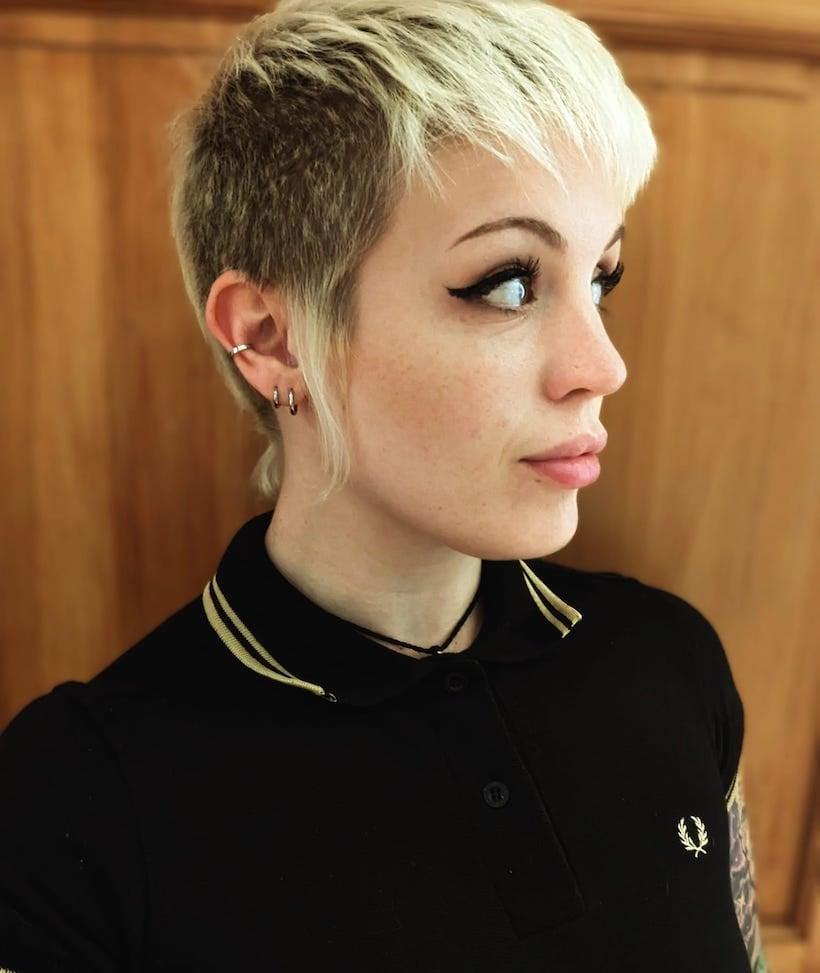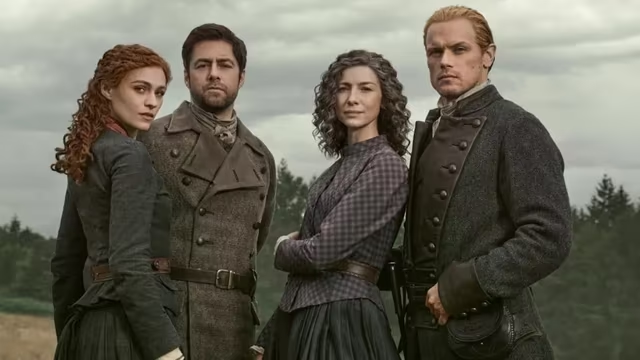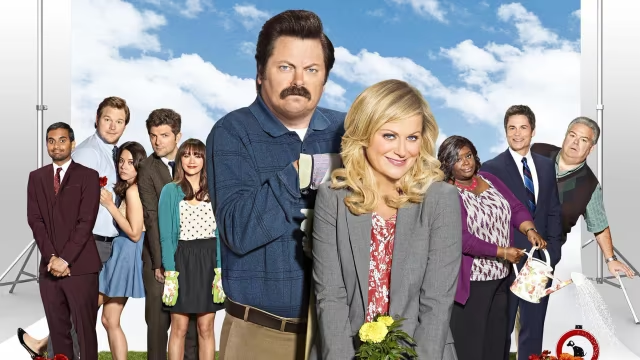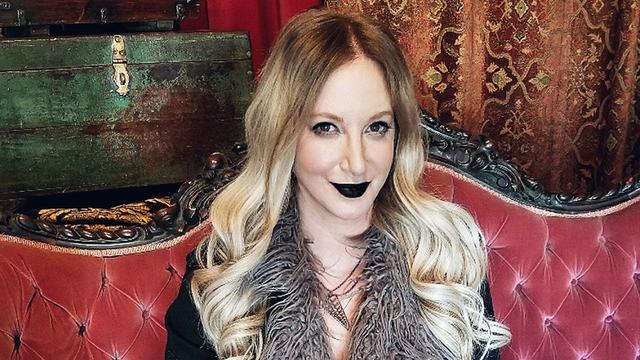If you click on a link and make a purchase we may receive a small commission. Read our editorial policy.
Comics pioneer Denis Kitchen talks comics, history, and censorship at NYCC 2022
In conversation with one of comics' greatest living legends.

If you’ve ever read a comic that’s anything beyond clean humor, caped heroes, non-violent clashes, or sanitized romance, chances are you have Denis Kitchen to thank. A founding father of the underground comix movement of the 1960s, an accomplished cartoonist, publisher, author, agent, and founder of the Comic Book Legal Defense Fund, it’s easy to say that Kitchen is one of the major cornerstones of comics as we know them.
Popverse was able to sit down with Kitchen at his table in Artist Alley at New York Comic Con to discuss where his desire to make comics a broad topic among audiences comes from and how he feels it can be kept alive in a time of censorship.
Your career has been so varied and widespread, and the constant really seems to be almost a mission to bring new audiences to older things or things that they might not be drawn to. Can you tell me a little bit about that ethos?
I think that's probably fair enough in broad strokes. I mean, I started as a cartoonist, and that's what I really wanted to be. But at the time I started in the era of underground comix, there was no real business model for that. And I, fortunately or unfortunately, had a knack for business when most cartoonists had no interest in business whatsoever, so by default, I quickly became a publisher; which I didn't mind.
I thought it was temporary. How long could such a thing last? Well it ended up lasting 30 years. I certainly kept a hand in cartooning, but it was more of a part-time thing. So as I began curating what I wanted to publish, it certainly included in my contemporaries at the time, but I also was early enough in the game that I was the first to approach people Will Eisner and Harvey Kurtzman and some of the what I call living legends, to both reprint their material and to have the audacity to ask them to do some new things for us, even if it was just guest covers and whatnot.

That led then to doing a program of what I call the classic strips from newspapers. There was never what I would call a business plan. I basically did things that I was personally proud of, and I just assumed that there would be enough others who shared my taste and my predilections. That proved to be the case. Not that Kitchen Sink [Press] was ever hugely successful, because I was not trying to compete with Marvel or DC. I didn't do any superheroes, unless you count The Spirit, who was not really a superhero. I just wanted to carve out an independent niche that I was proud to put my name on. The fact that I called it Kitchen Sink Press automatically meant I took a personal pride in it, and that lasted for 30 years.
For the last 20 years, I’ve reinvented myself. I write books. I still draw. I now represent the estates of artists as an agent. And I'm a book packager. I work with a partner to put together books, mostly for Dark Horse and some others. So it is a varied career, yes.
At the base of it, I just try to be personally creative, and as you said at the beginning, to bring things to the public that I think the public would want to see. I have to kind of be a psychic in a way, and sometimes it's a big gamble. Three or four years ago, I put out a very large, pricey book about an artist named Harrison Cady that I guarantee you, 99 out of 100 people passing by would not have heard of. But I loved his work and was passionate about it. I was convinced that if we showed it to people again-- it's like: if you build it, they will come.
Using the Kickstarter model, that turned out to be very successful. And so we're doing the same thing with another artist you've never heard of named Boris Artzybasheff which will be out in probably two years. So there are some people that were once famous, maybe 100 years ago, they've been forgotten, which is what happens in popular culture. I feel a personal mission for the ones that really excite me to have a new audience discover them. By doing that, I feel like that's a service both to the public who appreciates it, but also to the legacy and memory of those artists who really shouldn't be forgotten. And at least the books will be in libraries and other places indefinitely.
Now, with reprinting a lot of these older things, how much of a problem do you run into with pushback that comes with showcasing some things from a different era? A lot of cartoons from older eras aren’t exactly what the contemporary audience is used to by any stretch.
You mean comics that are politically incorrect?
Yeah. Stuff like that. Things that maybe haven’t aged well that are still worth talking about in context.
No, it's true. In fact, that Harrison Cady book, he was an amazing artist, but he briefly went through a period where he did some antisemitic work. We didn't hide it. We showed some of the worst examples, explained the context, which was the editor of Life Magazine at that point was a famous antisemite, who was really insisting that people on his staff follow his own political views. So we can't really make excuses other than to say for economic reasons he did it, but he never did it again once he left that editor. So we don't think he felt that way, he just did what seemed politically expedient at the time. So you have to show artists, warts and all.
I did a biography of Al Capp that's on the table here. Capp was the most famous cartoonist of his era, from the 1930s into the 1970s. Everyone knew who he was, because he was not just a cartoonist, he was on TV as well He was on The Tonight Show, he did campus speeches, he was everywhere. And he was in early hero of mine, but the more I found out about him, it turned out that today, we would call him a sexual predator.
At the time, people used more innocuous terms. They would say, "Oh, Al's just a womanizer." No. He was attacking women, and he should have been in prison. And he wasn't caught until very late in his career. He was punished, but he got off relatively light. So the biography, again, shows it warts and all. I think he was a genius as a cartoonist, but as a human being? He was a snake. And that's the story.

There's a certain difficulty to the argument of separating the art from the artist in cases like that for many people.
Exactly.
I can only imagine it becomes more difficult when you get down to digging out those older comics and those older creators from an entirely different generation as well. It was never okay, but it was definitely different.
Absolutely. It would be like today, right now, if you think Woody Allen was guilty, do you boycott his films now? Or can you appreciate his work as a filmmaker and think that maybe he was just a real jerk as a person? There's a lot of parallels. Political correctness is a dicey thing, because what's considered unacceptable now, as recently as 20 years, 30 years ago, was considered 'okay.' So do you judge someone by the standards of their day, or of today? And I think in many cases, it's unfair to attack someone for what might have seemed innocent in 1950 or 1900.
I’m sure there's something to be said too about, well, what good is boycotting somebody's movie or a comic going to do right now, 30, 40, 50 years after it's been made. It still happened. We can either not interact with it or interact with it as a piece of history with all of its many flaws.
Exactly.
I did want to ask, back in 2004, I think, is when you retired from the CBLDF. Is that about right?
It sounds about right. Yeah, I know I put in 18 years, and it started in 1986, I think.
So right about that time, I read a piece where you said, on your retirement, that it was time for somebody else who knew the necessary things of what comic censorship was to step up. That it needed somebody who was more up to speed on what was needed in the now for comic creators. Do you think that's something that comics could overall stand to have more of?
Yes. I mean, comics, like everything in the culture, evolves. And when I started the CBLDF, it was because one of the comics I published — Omaha the Cat Dancer — was busted for allegedly being obscene. To me it was just a highly literate erotic soap opera.
It was among some others. I think they busted about a dozen, including things like Elfquest and Heavy Metal. But I took the Omaha personally, and that's why I got involved to help the manager, who was facing some jail time and a hefty fine. At the time I basically raised money so that we could appeal it to the highest court we needed. That worked, and when we had money left, I decided, 'We'll make it a permanent organization.'
But in those days, what the most common incident was would be, again, not always, but typically an overzealous cop or a district attorney in the Bible belt would see something they didn't like, and would threaten the shop with whatever the local ordinance would say. Before the CBLDF came along, those shop owners probably would've had no choice. They would've been intimidated.
But suddenly, here is an 800 number they could call — somebody from the ACLU who had experience with First Amendment rights could come in, save the day, which happened 9 out of 10 times. But things evolve. And eventually, even those overzealous folks in the Bible Belt realized these are comics intended for an adult readership. Partly, you have to understand, generationally, you go back to the eighties when this began, there were a lot of middle aged people who didn't know there were comics intended for adults. To them, comic books were children's medium.
They still associated it with jokes and clean adventure from back it the day; all superheroes and capes and funny animals?
Exactly. So to give them the benefit of the doubt, they thought, "Hey, you're taking a children's medium and you're making them dirty. We can't let you do that." They were, you could say wrongheaded, but they were sincere in their own way.
It seems well-meaning enough in a weird way when you put it like that.
Just like people in Kentucky who don't want Gender Queer in their library. Well-intentioned people, but if you believe in the First Amendment, you can't let them prevail, because it's that slippery slope, and who knows what will get banned. You have to stop it, always.
Absolutely.

So that has evolved from those relatively simple cases, to now. There was no internet when I founded the CBLDF. We have cases now where people are crossing the border from, say Canada into the US, and they have Manga on their computer that’s objectionable, and are getting busted. We had a tax case where the state of California tried to tax an artist in California to mail his art to his publisher in California, and they wanted to add a sales tax.
That’s absurd!
It is ridiculous. We had to spend tens of thousands of dollars to prove to California that they couldn't do that. So it's not always simple censorship. It's really how the government, in that case, the state government, to a local city government, tries to suppress free expression. It's our goal to try to minimize that. You're never going to eliminate it. There's still going to be that shop who's intimidated, who doesn't call the 800 number, but we at least have a weapon to fight back. And so I'm proud of that. But I also know after 18 years, I was starting to get a little burned out, and I just thought fresh blood was needed. And we instituted term limits and a number of things intended to create a churn, which I just think is healthy in any organization. I didn't want to be the CBLDF czar until the end of my life.
I imagine even 18 years was quite a lot of work.
Well, it is. It's partly that, and it's partly you need to encourage volunteerism from wide arrays. We always try to recruit people from all aspects of the industry. Artists themselves, retailers especially; distributors, publishers — all of which are the four main building blocks. And so when we have the board of directors, we try to have representatives, at least one of each. And then in addition to that, you want gender and race diversity.
So you've got a group that can hopefully deal with whatever problem that comes up in a way that is the least controversial. And I say that because no matter what the CBLDF comes, it's going to come under attack itself because it didn't help somebody who thought they should be helped. And almost always, that's a case that's not a First Amendment case. If you call the CBLDF and say, "Hey, my publisher ripped me off," it's like, well, you're going to have to sue them. That's not a First Amendment case. That's a contract case. Or somebody else may say, "Why are you defending that pornographer?"
Because pornography can be art as well? Or rather it’s just another form of art if you want to be picky.
Exactly, yes. It's in the eye of the beholder. I guess I’m a First Amendment fundamentalist like that. But it’s all worth defending for its own reasons.
Learn more about Denis Kitchen's career and work at his website.
Did you miss the show? Get fully immersed in NYCC with Popverse's wall-to-wall coverage of the event. From filmed panels to backstage interviews, on-the-floor coverage, news, cosplay galleries, and more - we're tracking it all in Popverse's New York Comic Con 2022 round-up.
If you’ve enjoyed this coverage, please give Popverse a shoutout by tagging us on @PopverseSays on Twitter, Instagram, or Facebook, or linking to us at www.thepopverse.com.
About New York Comic Con 2022
Dates
-
Location
New York City
USA
Follow Popverse for upcoming event coverage and news
Find out how we conduct our review by reading our review policy
Let Popverse be your tour guide through the wilderness of pop culture
Sign in and let us help you find your new favorite thing.
















Comments
Want to join the discussion? Please activate your account first.
Visit Reedpop ID if you need to resend the confirmation email.